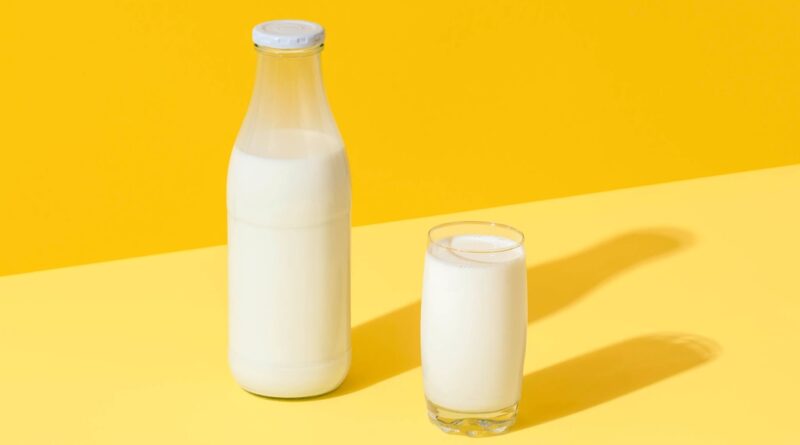Is highly refined milk healthy? What nutritionists want you to know about high-protein dairy
You might not think of milk as a health food, but with more protein and vitamins than any other milk, ultrafiltered milk has many benefits.
Basically, refined milk is cow’s milk that has gone through an additional purification process, Caroline Susie, a registered dietitian based in Dallas and a spokeswoman for the Academy of Nutrition and Dietetics, tells TODAY.com.
That process produces a product with more protein and much less lactose (milk sugar) than regular cow’s milk, he explains.
For the health-conscious crowd, that extra protein and less sugar is undoubtedly appealing. For some, the texture and taste of pasteurized milk is also attractive. “You get a creamier, and some would say, tastier result with this extra straining,” says Susie.
But is ultrafiltered milk really healthy for you? It depends on your dietary needs and health goals, nutritionists say.
What is ultrafiltered milk?
Ultrafiltered milk is cow’s milk that has undergone an additional filtering process.
The process involves separating the components of the milk by pressing it through a non-breathable membrane, Julia Zumpano, a registered dietitian with the Cleveland Clinic Center for Human Nutrition, tells TODAY.com. Water, lactose and other minerals are able to pass through the filter while larger particles – such as protein – are left behind, he explains.
Through this process, manufacturers are able to create a product that is almost “nutritional,” Zumpano says. “You’re filtering out small molecules, like sugar, but you’re concentrating on the cream which allows for more protein (per serving),” he adds.
A 2% cup of traditional cow’s milk contains about 122 calories, 8 grams of protein and 12 grams of carbohydrates (all of which come from lactose). However, a cup of 2% ultrafiltered milk will provide the same calories, 13 grams of protein and only 6 grams of carbohydrates.
Susie explains, raw milk provides more vitamin D and calcium, making it more nutritious than traditional cow’s milk. And you will find ultrafiltered milk with different types of fat, including skim, 2% and different types, so you can choose the one that makes sense to you.
Is skimmed milk lactose-free?
Much of the lactose that is naturally present in cow’s milk is removed during the process of making pasteurized milk, experts say.
Some companies take the extra step of adding lactase, an enzyme that breaks down lactose, to eliminate even more milk sugar in the product. (See the label for lactose information specific to the individual product.)
That makes ultrafiltered milk a good choice for people who can’t digest lactose but don’t want to switch to dairy milk.
“Depending on where in the world you are, it’s common for people to be lactose intolerant or not digest dairy products well,” Zumpano says. So if you have stomach problems after consuming traditional cow’s milk, you can easily tolerate refined milk.
However, remember that lactose intolerance and milk allergy are two different conditions. Removing lactose from milk does not make it safe for those with milk allergies.
Should you drink ultrafiltered milk?
If you like traditional cow’s milk and it fits your dietary needs and preferences, you don’t need to switch to ultrafiltered milk, experts agree. But ultrafiltered milk can provide some unique benefits for certain groups.
For those with diabetes, for example, low-sugar nonfat milk can be “very helpful,” Zumpano says. In addition to lactose, ultrafiltered milk is also a good choice for people who are lactose intolerant or who find milk is not always compatible with them.
Protein is the “loved nutrient” right now, Margaret Mangan, a registered dietitian at UNC Rex Nutrition Services, tells TODAY.com, while carbohydrates are less popular these days.
So, if you want to get more protein from your milk with fewer carbs, switching to ultrafiltered milk may make sense. For example, older adults need more protein as they get older, so switching can be beneficial, Mangan adds.
Because skimmed milk is full of protein, it can help keep you full longer than traditional milk, Susie says. (Mangan refers to protein and fat as the “anchors” in the diet for this reason.) That makes it a good choice for those trying to control their weight and anyone who prioritizes protein at breakfast.
That also helps people who may have limited food choices or appetites, Mangan says, such as cancer patients. “(With) every bite we want to … give them as much nutritional power as possible,” he says.
Keeping that trend in mind, Mangan adds, skimmed milk may be a better option for pregnant women, young adults or anyone with food allergies or sensitivities. who do not like to get more protein and nutrients in their food.
However, not everyone needs to add more protein, Mangan says. He adds: “My concern is that many people eat too much protein, and that can be dangerous. Because ultrafiltered milk is so high in protein, people with kidney disease and Chronic conditions may need to be cautious with these products, Mangan says.
Best practices for using highly refined milk
If you want to include ultrafiltered milk in your diet, experts recommend using it as you would any other milk.
That means you can drink a glass of it alone or use it in your breakfast bowl of healthy cereal, suggests Susie. Try using it in a casserole for extra protein, Mangan adds. Or, Zumpano says, use it in your oatmeal, smoothies or scrambled eggs.
“It’s no different than how you would drink regular cow’s milk,” Zumpano says. “It provides only a limited form of nutrition.”
#highly #refined #milk #healthy #nutritionists #highprotein #dairy
